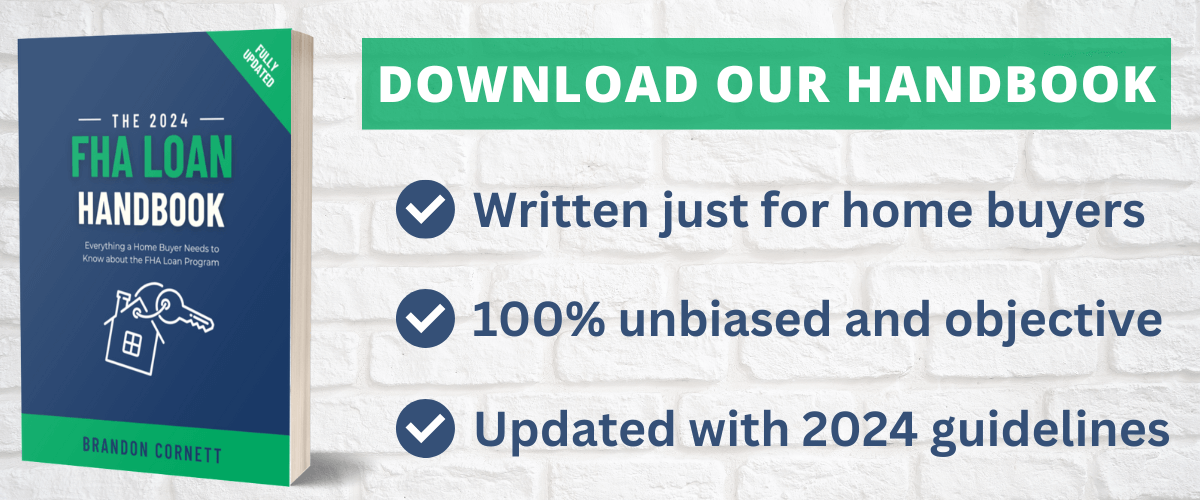This blog post is part of an ongoing series in which we answer common questions relating to the FHA mortgage insurance program. Today’s question is: With FHA loans, can the seller pay the buyer’s closing costs?
The short answer is yes. The Department of Housing and Urban Development, which manages the FHA loan program, allows sellers to contribute money toward the home buyer’s closing costs.
These contributions are generally limited to 6% of the sales price. Anything above 6% would be considered an “inducement to purchase” and would result in a dollar-for-dollar reduction in the sale price.
Terminology note: When buyers ask sellers to contribute money to their closing costs, it’s commonly known as a “seller concession.” But HUD refers to it more formally as an “interested party contribution.”
Sellers Can Pay Buyer Closing Costs With FHA Loans
The Federal Housing Administration (FHA) loan program is managed by the Department of Housing and Urban Development (HUD). So it is HUD that establishes the rules and requirements for this program, including seller contributions to the buyer’s closing costs.
Most of these guidelines can be found in HUD Handbook 4000.1, which is available online. Here’s what the handbook says about FHA loans, and sellers paying closing costs:
“Interested Parties refer to sellers, real estate agents, builders, developers or other parties with an interest in the transaction … Interested Parties may contribute up to 6 percent of the sales price toward the Borrower’s origination fees, other closing costs and discount points.”
The handbook goes on to explain that the 6 percent limit also includes:
- “Interested Party” payment for interest rate buy-downs, and other payment supplements
- Payments toward mortgage insurance for fixed-rate loans
- Mortgage payment protection insurance
- Payment of the borrower’s upfront mortgage insurance premium (UFMIP)
So yes, with an FHA loan the seller can pay closing costs for the buyer. They person selling the house can contribute up to 6 percent of the sale price.
Example: With an agreed-upon purchase price of $300,000, the seller could pay up to $18,000 in buyer closing costs. (Because 300,000 x .06 = 18,000.)
If a seller or other interested pay contributes more than 6 percent, it would be considered an inducement to purchase. When it comes to FHA loans, these inducements generally result in a dollar-for-dollar reduction to the purchase price, for purposes of determining the borrower’s loan-to-value (LTV) ratio. But that’s another article entirely.
Other important notes from the HUD handbook:
- Seller contributions can be applied toward the buyer’s closing costs, but they cannot be used for the borrower’s minimum required investment (or down payment).
- Payment of real estate agent commissions or fees, which are typically paid by the seller, is not considered to be an Interested Party Contribution.
- “The satisfaction of a PACE lien or obligation against the Property by the property owner is not considered an Interested Party Contribution.”
But Should You Ask for a Concession?
With an FHA loan, the seller can pay money toward the buyer’s closing costs. We’ve covered that.
But that doesn’t mean home buyers should ask for a seller concession in every scenario. This kind of thing is market-dependent. Whether or not you should ask for closing cost help with an FHA loan will largely depend on the state of your local real estate market.
Consider the difference:
- If you’re in a sellers’ market, with limited inventory and strong demand from other buyers, the homeowner might not be willing to pay your closing costs — with FHA or any other type of mortgage loan.
- If you’re in a buyers’ market, with plenty of housing inventory but relatively low demand, sellers will be more willing to negotiate for concessions. They’ll be more eager to land an offer.
- And there’s a broad spectrum between these two extremes.
The point is, if you ask for more than is common in your local market, that house might slip right through your fingers. This is why it’s wise to have help from a real estate agent who is familiar with local market trends and customs. This kind of insight can go a long way.
Related: Why do some sellers avoid FHA?
Disclaimer: This article answers the question, Can sellers pay the buyer’s closing costs with FHA loans? Most of the information above was adapted from HUD Handbook 4000.1, also known as the Single Family Housing Policy Handbook. If you have questions about this topic, please refer to that official source, or visit HUD.gov for more information.
